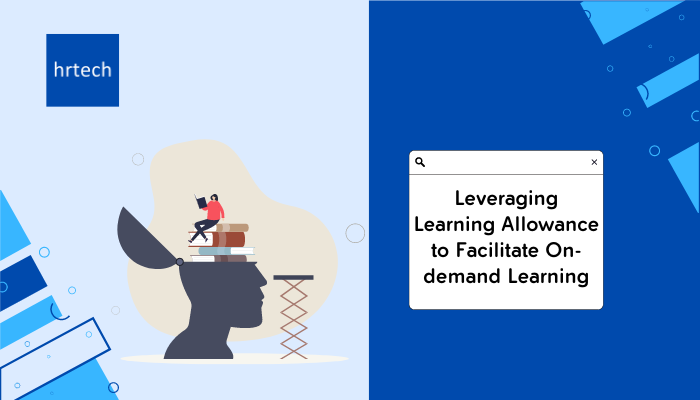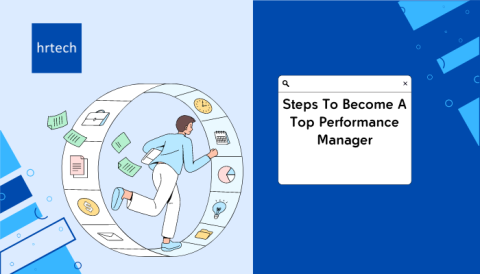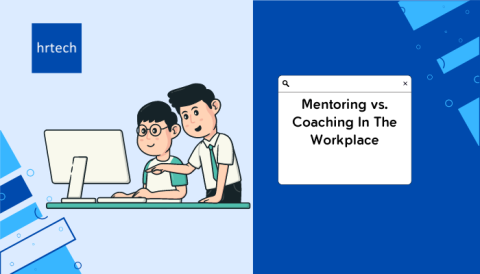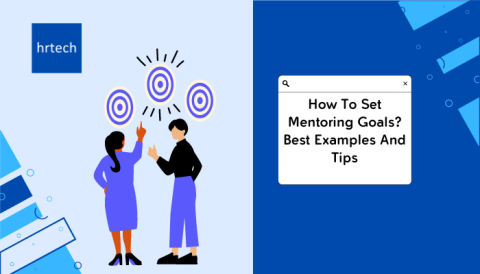There is enough data today to support that while people around the world value a learning culture at the workplace, it has proven to significantly improve a company’s bottom line.
by Ankit Durga, Co-founder & CEO , Fundamento
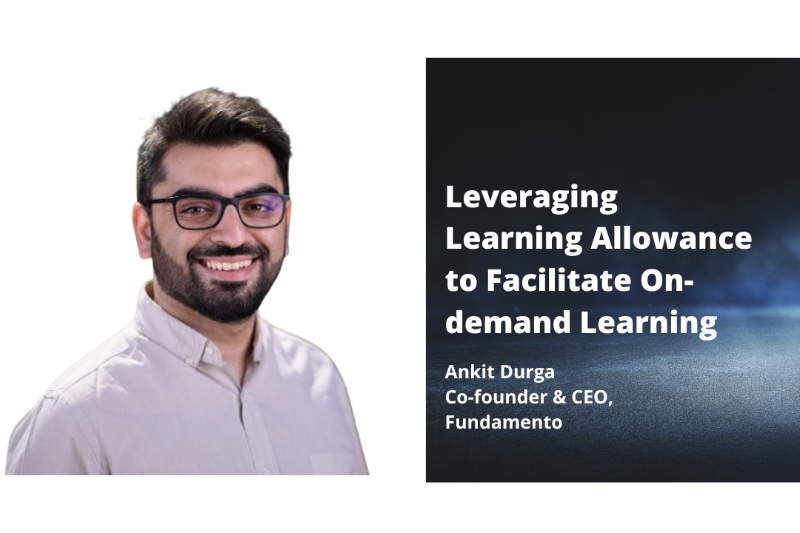
The growing emphasis on employee learning and development at the organizational level is not surprising. The pandemic accelerated a trend that was lingering in the shadows. However, there is enough data today to support that while people around the world value a learning culture at the workplace, it has proven to significantly improve a company’s bottom line.
In fact, the LinkedIn Workplace Learning Report 2022 highlighted that not only has L&D become an important central function of organizations but there has been a 94% increase in the demand for L&D specialists in just the last year. This is a testimony to the fact that learning and upskilling is not just an employee priority but has a direct impact on business outcomes. Studies over the last decade have shown how upskilling employees can lead to 14%-29% increase in profit and 10%-19% increase in sales.
The pandemic and the lockdown played a vital role in promoting lifelong learning and upskilling for employees. LinkedIn feeds were blown with people showcasing their online diplomas and certificates that fostered more learning and growth. This has definitely transformed the way organizations are investing in their people and skills.
The 2021 Employee Well-Being Report by Glint highlighted that opportunities to learn and grow shot up eight positions between 2020 and 2021 to become the number one factor for employees to value an organization. That’s an incredible jump in priority especially because the other things it surpassed are – sense of belonging, organizational values, support for well-being, collaboration and change adaption – all being primary drivers of an employer’s brand until then. There’s an obvious shift in the way the current generation of working professionals feel about work and it’s not merely functional. We’re essentially looking at a workforce that values organizations that help them learn and contribute to their social, intellectual and professional growth.
However, this trend has significantly evolved in recent times. Employees are looking at going beyond doing their day jobs and are keen on learning opportunities, but they want to do this in their own way and in their own time. Recent research shows that more than half of the employees want to learn at their own pace.
Ergo, carpet-bombing L&D initiatives on employees is not the right way to go about it.
Traditionally and even as the focus on L&D shot up in the last couple of years, organizations have tried to implement learning models that are centralized and standardized. We know this is not sustainable as the majority of the workforce is openly talking about on-demand learning. Hence, it comes as no surprise that organizations implementing and offering on-demand learning opportunities are growing multifolds.
Enter, Learning Allowances!
Learning allowances are transformative because they allow employees to chart out their own learning journey. This creates room for on-demand learning where employees can learn while working, at their own time and pace. Learning allowance also is an effective way through which organizations can empower their employees.
Centralized L&D initiatives rarely show great ROI. A learning allowance can help achieve that very effectively. In fact, experts in the field believe that it’s important to let employees experiment with different forms of learning in order to achieve productive results.
Organizations can design a framework to ensure targeted and relevant learning. Growth strategist Jamie Notter says that creating containers within which employees can make decisions is the best way to ensure targeted learning while empowering employees with flexibility to learn at their convenience. This approach is even more effective with the current Millennial and Gen Z workforce. It makes them feel in-charge and gives them ownership of their growth which essentially is being facilitated by the organization.
While upskilling has become a priority and companies have quickly realized the need for L&D interventions, it’s equally important to focus on its implementation. As companies are readily adopting L&D initiatives, it’s crucial they do it right. This includes HBR’s 3Ms of building a learning organization – Meaning, Management and Measurement. Why are you doing it, what are you doing, how are you measuring it? This helps ensure that upskilling your employees is directly improving your organization’s business outcomes.
We work with organizations to help close the loop on this. Fundamento’s Upskilling Management Platform empowers rapidly-growing companies with learning interventions that are completely backed by data and science. The platform is powered by an AI-enabled skills framework to quantify employee skill sets, identify high potential talent and design data-driven training interventions. We also provide access to our curated training marketplace where employees can use learning allowances to unlock more targeted learning opportunities based on our recommendations.
Leading companies are already using the insights available on Fundamento’s platform to train their customer-facing teams, develop better leaders across teams and drive digital transformation while building a skills-first culture for everyone.
About the Author:

Ankit Durga, Co-founder and CEO at Fundamento, is an alumnus of Harvard’s Executive Program for Strategic Nonprofit Management and an INK Fellow. He has been a youth representative for Duke of Edinburgh’s International Award Program—a youth recognition program for students from across the world. Ankit’s entrepreneurial journey began in 2013 with Leap Skills. Before that, he worked in various managerial roles across both — corporates and start-ups. Following his graduation from Shaheed Sukhdev College of Business Studies, Delhi University, Ankit worked at Ernst and Young as a risk analyst. He then joined the start-up sector and worked at successful companies such as Zomato and Happily Unmarried, acquiring significant insights into start-up work culture.
